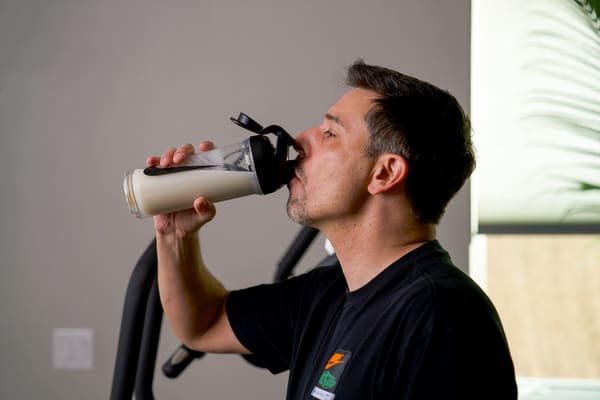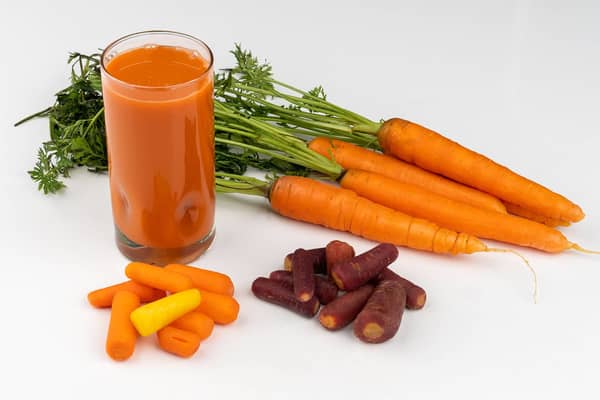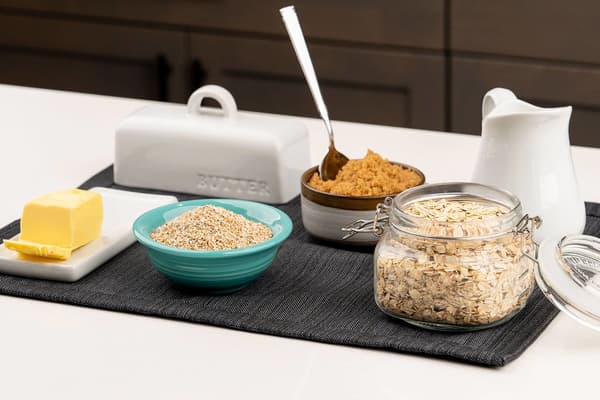Watermelon Juice Benefits, According To Registered Dietitians
Nutrition
Savor this refreshment post-sweat sesh.

There’s nothing quite like sinking your teeth into a juicy piece of watermelon. On its own, the fruit is sensational. But have you ever considered drinking watermelon juice? Aside from being refreshing, the beverage houses a wealth of nutrients that could aid athletic performance and recovery.
Here are four research-backed watermelon juice benefits that registered dietitians say you could reap when you drink.
Benefits of Watermelon Juice, According to Registered Dietitians
1. It Gives You a Boost of Hydration
“Watermelon is one of the best ways to stay hydrated,” said Emma Drackford, a registered nutritionist through the Sport and Exercise Nutrition Register. She explained that watermelon is made up of 92 percent water, making it a hydrating beverage.
“Drinking enough water helps regulate body temperature, keeps organs functioning, aids in digestive health, moves waste products out of your body, and helps in the delivery of nutrients to cells,” said Mariana Dineen, R.D. While drinking water should still be part of your regular routine, consuming watermelon juice can help to reach your daily water intake needs. Experts say that the average woman requires about 11.5 cups of water per day for performing daily activities (this doesn’t include working out), versus men who may require up to 15.5 cups for daily activities.
(Related: Dietitian-approved Foods That Can Help You Rehydrate After an Outdoor Workout)
2. It Offers a Healthy Dose of Electrolytes
According to Dineen, watermelon contains two key electrolytes, magnesium and potassium, which help to improve exercise performance and maintain fluids for hydration. For context, electrolytes are essential minerals that help ensure you have enough nutrients flowing in and waste flowing out of your cells. It also helps keep the amount of water in your body in check.
With that said, drinking watermelon juice shouldn’t replace other forms of electrolytes, as it misses the mark on sodium, which is a crucial electrolyte. “Because it is low in sodium, it won’t properly hydrate you for sports use, which is worth bearing in mind,” Drackford said.
3. It Can Support Heart Health
Watermelon also contains an antioxidant called lycopene, which is responsible for giving the juicy melon its reddish-pink hue.
“Antioxidants are health-supporting molecules that safely interact with free radicals, neutralizing them and inhibiting their capacity to cause cellular damage,” Dineen said. “Data from epidemiological studies suggests that lycopene may improve blood lipids and blood pressure,” she said, adding that lycopene is bioavailable from fresh watermelon. Bioavailability is related to absorption and means that a substance can be absorbed by the body. So, in this case, lycopene can get absorbed by the body when consuming watermelon.
Components of watermelon may also help lower blood pressure. The citrulline found in watermelon transforms into an amino acid called arginine in the body and helps with the synthesis of nitric oxide, “which acts as a vasodilator and helps lower blood pressure,” Dineen said. While the whole watermelon contains citrulline, Dineen explained it’s most abundant in the white rind. Luckily, most store-bought watermelon juice uses cold-pressed juice from both the rind and the flesh so you can have this perk when drinking watermelon juice.
4. It May Facilitate Muscle Recovery
Citrulline is once again the star of this key watermelon juice benefit.
“This amino acid helps boost the blood flow to your muscles, which helps to stop you [from] getting so sore after training,” Drackford said. She also said the amino acid “can help to boost the amount of nitric oxide that your muscles get, making exercise feel easier.”
How To Make Watermelon Juice
Making fresh watermelon juice is a lot easier than it might seem. In fact, you don’t need a juicer or anything fancy to get the job done.
“Scoop the watermelon flesh from one small watermelon, blend for about 30 seconds, and you have watermelon juice,” Dineen said. For smoother juice, she recommended pouring the blended watermelon through a fine mesh sieve to strain it. For something a little more convenient, you can also get fresh-pressed watermelon juice in the store, which includes the rind and flesh.
“If you are going to buy juice from the store, opt for 80 to 100 percent juice with no added sugar,” Dineen said.
And be mindful of added sugars, Amanda Sauceda, M.S., R.D.N., said. According to the American Heart Association, women should not exceed six teaspoons and men should not exceed nine teaspoons of added sugar per day. To avoid the risk of added sugar, it’s best to look for fresh-pressed juice vs. packaged ones that have a longer shelf life.
Is There Anyone Who Should Limit Their Consumption of Watermelon Juice?
As Dineen pointed out, watermelon is considered a high FODMAP fruit. FODMAP stands for fermentable oligosaccharides, disaccharides, monosaccharides, and polyols, which are a group of sugars that are poorly digested and absorbed by the gut. People who have irritable bowel syndrome, for example, may experiment with a low FODMAP diet to help identify which foods worsen symptoms.
“If you are on the elimination phase of the low FODMAP diet, you should avoid watermelon,” Dineen said.
With that said, not everyone has a sensitivity to high FODMAP foods and, through the FODMAP diet, you can reintroduce watermelon if it was tolerated well. Of course, working closely with a licensed registered dietitian is advised when following any kind of elimination diet.
Additionally, Dineen said those who have dietary fructose intolerance (which is sometimes called fructose malabsorption) or hereditary fructose intolerance, will want to steer clear of watermelon. Those with hyperkalemia also need to be careful about consuming too much watermelon juice.
“It [hyperkalemia] is a condition where you have too much potassium in your blood,” Drackford said. Since watermelon is a good source of potassium, Drackford said people with the condition should “steer clear” of it altogether.
Words by Jessie Quinn





